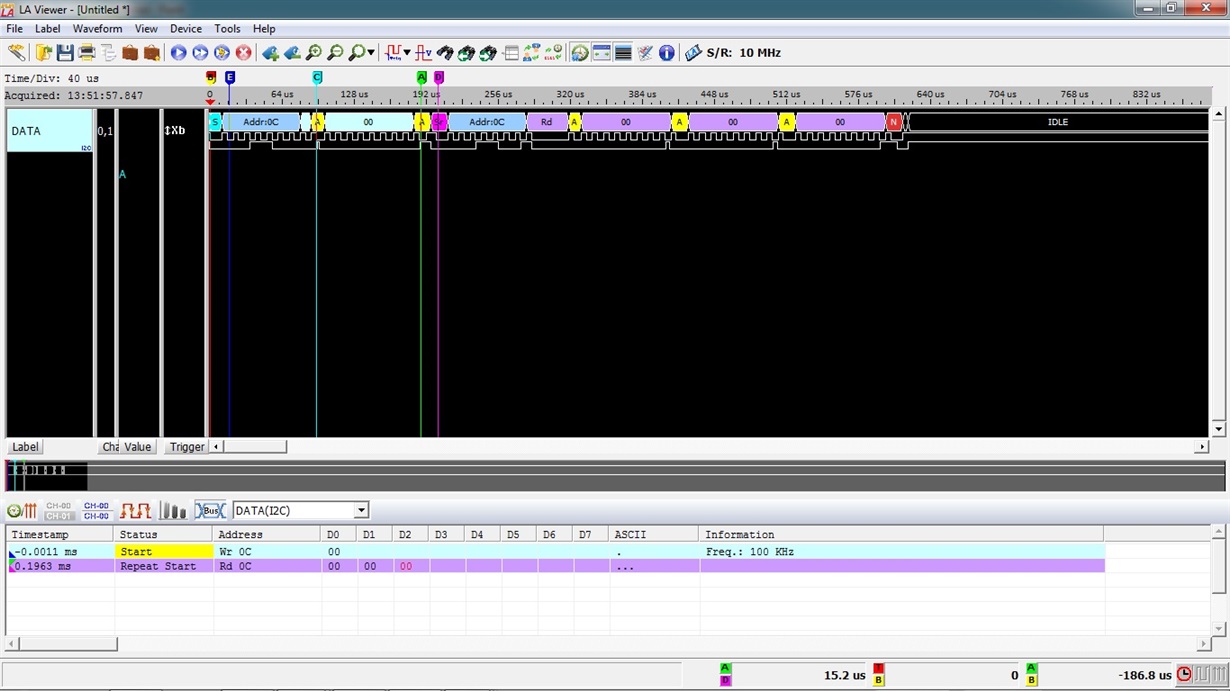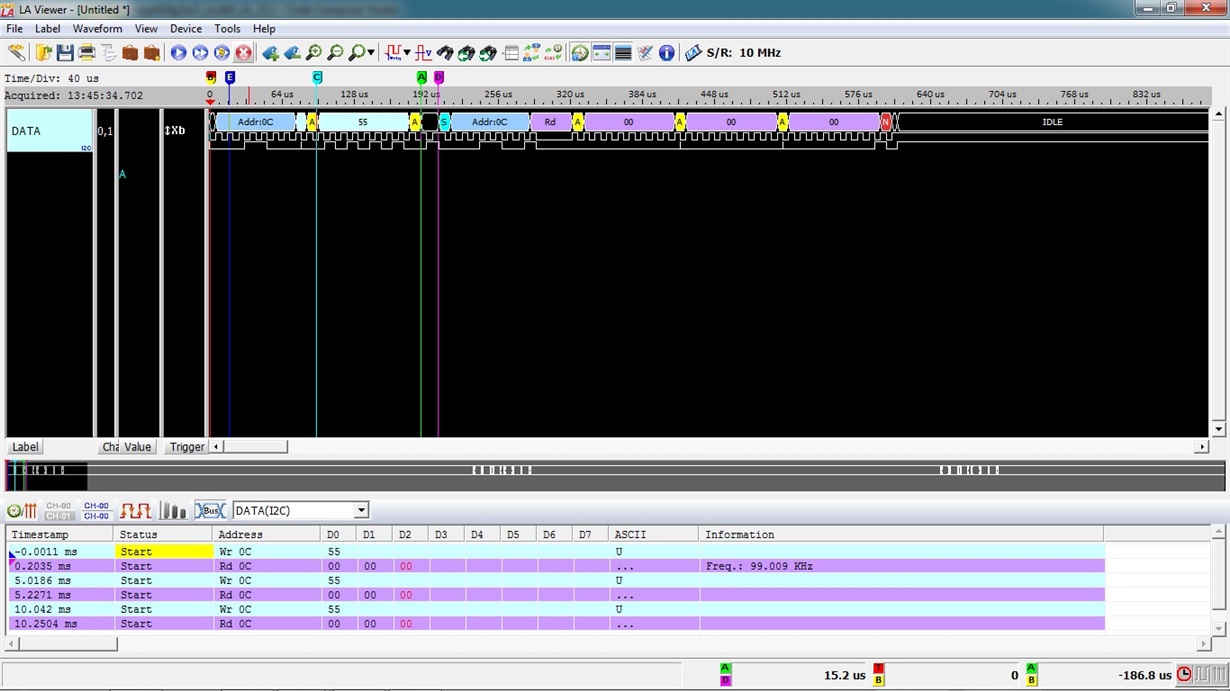Hi There,
I am having an issue with MSP430FR5859 and its I2C in slave mode.
Like the screenshot below, when repeat start is issued immediately after MSP430FR5859 acks, MSP430FR5859 will hangs. It may not happen to each transmission, but it will happen in 5 minutes (the master periodically access data from MSP430FR5859). By the way, the hanging only happens when a timer is also used. when I disable the timer, it doesn't hang.
However, if there is a small delay (16.5us) between repeat start and the ack from MSP430FR5859 like the screenshot below, MSP430FR5859 never hangs. I let it run for 5 days straight, and MSP430FR5859 never hung.
Does anyone have an idea why MSP430FR5859 would hang? Thank you
regards,
Kevin



